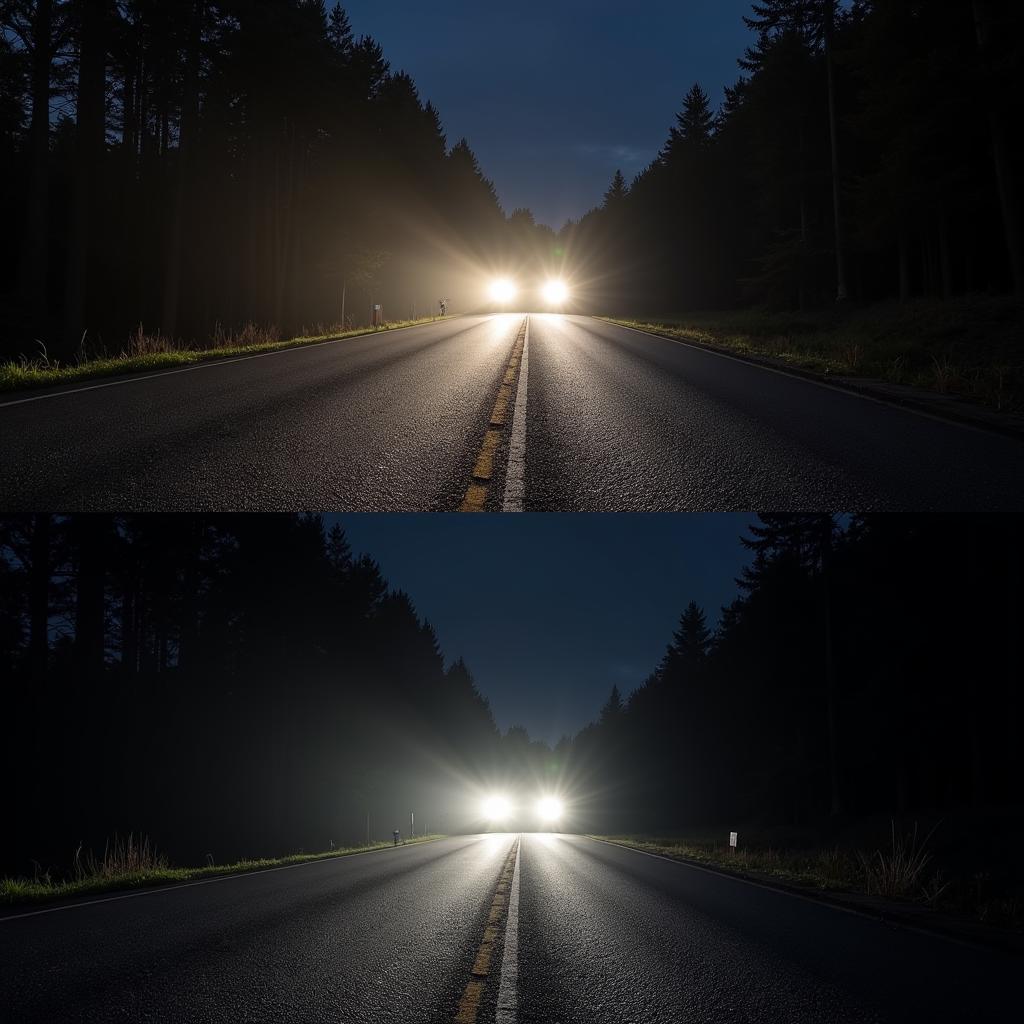Night Walker Lenses: See Clearly, Conquer the Night
October 28, 2024Night Walker Lenses, also known as night driving glasses, have become increasingly popular in recent years, and for good reason. These specialized lenses are designed to enhance your vision in low-light conditions, such as driving at night or walking in dimly lit areas. Whether you’re a seasoned driver or just starting out, night walker lenses can provide a significant advantage, making your nighttime adventures safer and more enjoyable.
How Night Walker Lenses Work
Night walker lenses typically feature a yellow or amber tint that helps to filter out certain wavelengths of light, particularly the blue light emitted from headlights and streetlamps. This blue light is known to scatter more easily in the atmosphere, which can contribute to glare, halos, and reduced contrast sensitivity, making it difficult to see clearly at night.
By filtering out this blue light, night walker lenses allow more of the remaining light spectrum to reach your eyes, improving contrast and depth perception. This enhanced vision can help you to:
- Reduce eye strain and fatigue: Your eyes won’t have to work as hard to see in low light, reducing strain and fatigue, particularly during long drives.
- Improve reaction time: With clearer vision, you’ll be able to react more quickly to potential hazards on the road.
- Enhance contrast sensitivity: Distinguishing between objects and their backgrounds is easier, making navigation safer.
- Minimize glare and halos: The yellow tint combats the distracting effects of glare from oncoming headlights, streetlights, and other light sources.
 Night walker lenses vs regular lenses
Night walker lenses vs regular lenses
Choosing the Right Night Walker Lenses
While the concept of night walker lenses is straightforward, selecting the best pair for your needs involves considering several factors:
1. Tint Intensity
The intensity of the yellow or amber tint can vary significantly between different night walker lenses. A lighter tint provides subtle glare reduction, while a darker tint offers more significant benefits, especially in extremely low-light conditions.
“It’s important to find a tint intensity that works for you,” advises Dr. Emily Carter, an optometrist specializing in low-vision solutions. “A tint that’s too dark can actually hinder your vision in well-lit areas, so it’s crucial to strike a balance.”
2. Lens Material
Like regular eyeglasses, night walker lenses are available in various materials, each with pros and cons.
- Glass lenses: Known for their scratch resistance but can be heavier and more prone to shattering upon impact.
- Polycarbonate lenses: Highly impact-resistant and lightweight, making them a popular choice for active individuals.
- Trivex lenses: Offer a combination of impact resistance, lightweight comfort, and excellent optical clarity.
3. Lens Coatings
Anti-reflective coatings are highly recommended for night walker lenses, as they further minimize glare and improve light transmission. Additional coatings, such as scratch-resistant and UV-protective layers, can enhance the durability and functionality of your lenses.
4. Prescription Needs
If you wear prescription glasses, opt for night walker lenses that can be customized with your prescription, ensuring optimal vision correction and low-light enhancement.
Beyond Driving: Other Uses for Night Walker Lenses
While commonly associated with driving, night walker lenses can prove beneficial in various other situations:
- Cycling: Enhanced contrast and reduced glare improve safety when cycling in low light or at night.
- Running: Seeing obstacles and uneven terrain is easier, making nighttime runs safer and more enjoyable.
- Boating and fishing: Nighttime navigation and spotting buoys become less challenging with improved contrast and reduced glare from the water’s surface.
- Computer use: The yellow tint can help to reduce eye strain caused by prolonged exposure to digital screens.
Conclusion
Night walker lenses offer a practical solution for enhancing your vision and safety in low-light conditions. Whether you’re navigating bustling city streets or cruising down a dimly lit highway, these specialized lenses can significantly improve your driving experience and overall comfort. By carefully considering the factors outlined above, you can choose the perfect pair of night walker lenses to meet your individual needs, ensuring clearer vision and enhanced safety during your nighttime adventures.
FAQs about Night Walker Lenses
1. Do night walker lenses work for everyone?
While most people experience improved vision with night walker lenses, their effectiveness can vary depending on individual eye conditions and lighting situations.
2. Can I wear night walker lenses over my regular glasses?
Clip-on and flip-up designs are available for those who prefer not to switch between multiple pairs of glasses.
3. Are night walker lenses suitable for daytime use?
While they can be worn during the day, the yellow tint might alter color perception and is generally not recommended for prolonged daytime use.
4. How do I clean my night walker lenses?
Use a microfiber cloth and lens cleaning solution specifically designed for eyeglasses. Avoid using abrasive materials or harsh chemicals.
5. Where can I buy night walker lenses?
Night walker lenses are available at most optical stores and online retailers specializing in eyewear.
Need assistance? Contact us:
Phone: 0963418788
Email: [email protected]
Address: 2M4H+PMH, Phường Nghĩa Thành, Gia Nghĩa, Đắk Nông, Việt Nam.
Our customer support team is available 24/7 to help you with any questions or concerns. You can also explore our other articles on eye health and vision care on our website.